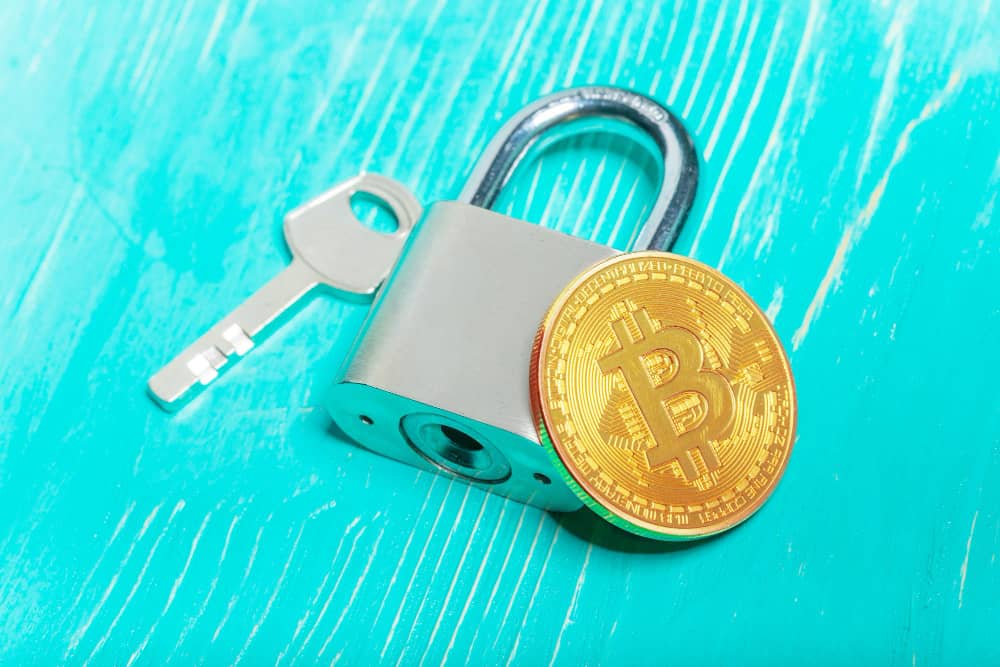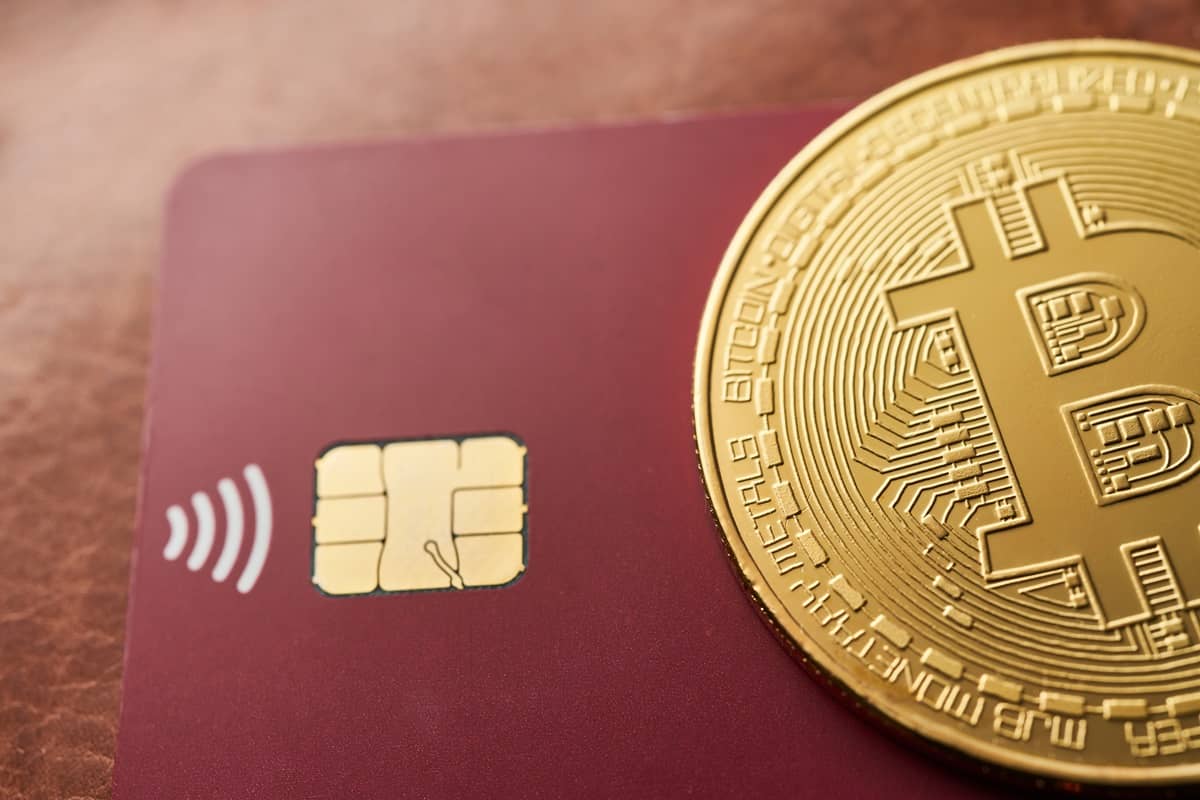
Welcome to the world of cryptocurrency! As exciting as this digital frontier might be, it also poses several risks for newcomers. Imagine navigating a bustling marketplace where everyone is shouting about incredible deals and opportunities. Just like in any market, there are genuine opportunities—but there are also traps.
To help you safely explore this new terrain, we'll cover essential tips to protect yourself from scams, hacks, and other risks.’s Here a sneak peek of what you'll find:
- Recognizing common types of crypto scams
- Securing your digital wallet
- Choosing reputable exchanges
- Practicing safe online habits
By the end of this guide, you'll be better equipped to make informed decisions and enjoy the exciting benefits of crypto with confidence.
Recognizing Common Crypto Scams
Imagine you come across an exciting offer promising triple returns on your investment in just a week. Sounds too good to be true, right? That’s because it often is. One of the most prevalent scams in the crypto world involves forged airdrops or fake investment opportunities. These schemes lure you in with enticing rewards but end up stealing your funds or personal information.
Another common scam is phishing. Scammers create fake websites or send emails that closely mimic legitimate companies. Their goal? To trick you into revealing your login credentials or wallet keys. Always double-check URLs and never click on links from unfamiliar sources.
The threat of ransomware is also significant. This malware can lock your files and demand payment—in cryptocurrency, of course—to release them. Always have a robust antivirus solution in place and back up your important files regularly.
Fake crypto wallets and exchanges are other pitfalls to watch for. Scammers might create counterfeit apps that appear legitimate in app stores. Download wallet software only from trusted sources to mitigate this risk.
In summary, be very cautious with any too-good-to-be-true offers, unsolicited messages, and unfamiliar apps. Educate yourself continuously and stay vigilant to protect your investments.
Choosing Reputable Exchanges
Choosing a reputable exchange is crucial for ensuring the security of your crypto investments. When entering the crypto market as a beginner, it’s vital to research and select an exchange that has a proven track record of security, transparency, and user satisfaction. Start by looking at user reviews, ratings, and any available security audit reports of the exchanges you are considering. Trusted platforms like Coinbase and Binance are popular choices among novices due to their user-friendly interfaces and robust security features.
Engage in due diligence by examining their security protocols. Opt for exchanges that offer two-factor authentication (2FA), encryption, cold storage for the majority of user funds, and regular security audits. Centralized exchanges (CEXs) typically provide more features and liquidity but come with higher risks of hacks compared to decentralized exchanges (DEXs), which offer greater control over your funds but less convenience and liquidity.
Also, verify the exchange’s regulatory compliance and transparent operational histories. Trusted exchanges often adhere to local regulations and have measures in place to prevent fraud and ensure user protection. Platforms that require KYC (Know Your Customer) and AML (Anti-Money Laundering) procedures may offer extra layers of safety.
Additionally, consider the customer support experience. Robust customer service can be a lifesaver in critical situations. Look for platforms that offer 24/7 support and have a responsive helpdesk to resolve any issues that might arise promptly. Remember, the right exchange should provide a balance of security, ease of use, and reliable customer service.
Securing Your Wallet: Hot vs Cold Storage
When it comes to securing your cryptocurrency, understanding the difference between hot and cold storage is crucial. Hot wallets are connected to the internet and include web wallets, mobile wallets, and desktop wallets. These are convenient for everyday transactions but are inherently more vulnerable to hacking and theft.
On the other hand, cold storage involves keeping your digital assets offline, significantly reducing the risk of online hacks. Cold wallets include hardware wallets and paper wallets. A hardware wallet is a physical device that securely stores your private keys offline, while a paper wallet involves maintaining your keys on a piece of paper - both options offer superior security but necessitate careful handling to avoid physical damage or loss.
For beginners, the balance usually lies in using a combination of both. You might leverage a hot wallet for active trading or daily transactions and a cold wallet for storing larger amounts of cryptocurrency securely. This hybrid approach ensures that while you enjoy the flexibility and convenience of hot wallets, your long-term investments remain safeguarded.
Additionally, it’s important to follow best practices for both storage types. For hot wallets, use strong, unique passwords and enable two-factor authentication. For cold wallets, ensure that they are kept in a secure place—consider using a safe or a bank safety deposit box. Regularly back up your wallet information and ensure you have multiple copies in different secure locations.
Understanding Two-Factor Authentication
Two-Factor Authentication (2FA) is a critical layer of security for your cryptocurrency accounts. It goes beyond the simple username and password combination, requiring an additional validation step to verify your identity. This extra step significantly reduces the risk of unauthorized access, protecting your digital assets from potential threats.
There are different forms of 2FA to choose from. The most commonly used method is time-based one-time passwords (TOTP), generated by apps like Google Authenticator or Authy. These apps create a new code every 30 seconds, which you need to enter along with your password. Another popular option is receiving a code via SMS, though this is generally considered less secure due to the risk of SIM swapping attacks.
For enhanced security, consider using physical authentication methods. USB security keys, such as YubiKey, or biometric methods like fingerprint and facial recognition, provide robust protection. These methods ensure that even if someone obtains your password, they still cannot access your accounts without the physical device or your biometric data.
To enable 2FA, visit the security settings of your exchange or wallet provider and follow their specific instructions. It usually involves scanning a QR code with your authentication app or linking your biometric device to the account. Ensure that 2FA is activated on every account that supports it, creating a more secure crypto environment for your transactions.
Remember, setting up 2FA is just the beginning. Regularly update your authentication methods and stay informed about potential vulnerabilities. Strengthening your security measures today can save you from substantial losses tomorrow.
Being Wary of Phishing Attempts
Phishing remains one of the most prevalent threats in the cryptocurrency space. These attacks are designed to trick you into revealing sensitive information like your login credentials and private keys. To protect yourself, always be skeptical of unsolicited communications, whether they come via email, text message, or even social media. Never click on links from unknown sources or share your private information.
One effective way to safeguard against phishing attempts is to enable anti-phishing codes. These are unique identifiers that legitimate services will include in their communications with you. If you don't see your unique code, it's a red flag. Additionally, always verify the URL of any website before entering your login details. Fake websites often look almost identical to the real ones, down to minute details, so double-checking the URL can prevent a costly mistake.
An extra layer of security can be found by using secure browsers and keeping your software up to date. Many modern browsers offer built-in features that warn you about phishing websites. Regular software updates often include patches that protect against newly discovered threats, so staying up to date is crucial.
Another tip is to implement IP address whitelisting whenever possible. This feature allows you to specify which IP addresses can access your accounts, adding an extra hurdle for would-be attackers. Also, consider separating your funds across different wallets. This way, even if one wallet is compromised, you don't lose everything.
Educational resources are another powerful tool in your arsenal. Make it a habit to learn about new scams and security threats. The more you know, the better equipped you'll be to recognize and avoid phishing attempts.
To sum up, staying alert and educated, along with employing multiple layers of security, can significantly reduce the risk of falling victim to phishing scams. Your vigilance is your best defense in this rapidly evolving digital landscape.
Keeping Your Software Up to Date
Ensuring your software is up to date is one of the easiest yet most critical steps you can take to protect your crypto assets. Software updates often include patches for vulnerabilities that could be exploited by hackers. Outdated software can be a gateway for malicious activities, giving cybercriminals a chance to access your wallet or personal information.
How to Keep Your Software Updated:
- Enable Automatic Updates: Most software and apps offer an option to turn on automatic updates. This ensures that you are always running the latest, most secure version without having to remember to check for updates manually.
- Check for Updates Regularly: Even if you have automatic updates enabled, it's a good habit to periodically check for updates yourself. Developers sometimes release critical patches that may not roll out immediately to all users.
- Update All Related Software: It's not just your wallet software or trading applications that need updating. Ensure your operating system, antivirus programs, and even your browser are all up to date to provide a holistic shield against security threats.
- Remove Unnecessary Software: The fewer applications you have installed, the fewer opportunities there are for vulnerabilities. Only keep essential software and perform regular audits to remove any programs you no longer need.
Maintaining updated software is a foundational aspect of a comprehensive security strategy. By keeping your systems current, you significantly reduce the risk of falling victim to cyber-attacks and ensure your crypto investments are well-protected.
Avoiding Public Wi-Fi
Using public Wi-Fi can be incredibly convenient, but it's also a hotbed for hackers looking to steal your sensitive information. When you connect to an unsecured network, you're opening yourself up to a slew of potential threats, including man-in-the-middle attacks where someone can intercept your data.
To protect yourself, it's essential to avoid performing any crypto transactions or accessing your wallet when connected to public Wi-Fi. Instead, use a secure, private internet connection whenever possible.
If you must use public Wi-Fi, consider employing a Virtual Private Network (VPN). A VPN encrypts your internet traffic, making it much harder for hackers to intercept your data. However, keep in mind that some VPNs can slow down your connection due to the extra layers of encryption. Choose a reputable VPN service that offers fast speeds and robust security features to mitigate this issue.
Additionally, use your mobile device's data plan for private transactions and avoid connecting to unfamiliar networks altogether. By being cautious and mindful of your internet connection, you can significantly reduce your risk of falling victim to cyber-attacks.
Using Hardware Wallets for Extra Security
Hardware wallets are an excellent way to keep your cryptocurrencies secure by storing them offline. These devices, often resembling USB drives, provide an added layer of protection compared to hot wallets, which are constantly connected to the internet. By using a hardware wallet, your private keys never leave the device, making it much more difficult for hackers to access your funds.
When choosing a hardware wallet, consider popular options like the Ledger Nano S, Ledger Nano X, and Trezor. Each of these devices comes with its own set of features and price points, so review their specifications to find the one that best meets your needs. Additionally, these wallets require a physical connection to your computer or mobile device to initiate any transactions, further reducing the risk of unauthorized access.
To maximize the security of your hardware wallet, ensure that you set a strong pin code and enable any available encryption features. It’s also critical to keep the device’s firmware up-to-date, as manufacturers often release updates to patch vulnerabilities and enhance the wallet’s security.
While hardware wallets are highly secure, they are not impervious to physical attacks. Make sure to store your hardware wallet in a safe place, out of reach from potential thieves or sophisticated attackers who might attempt to gain physical access. Remember, protecting your private keys with care is paramount to safeguarding your digital assets.
Backing Up Your Wallet
Backing up your wallet is one of the simplest yet most crucial steps you can take to protect your cryptocurrencies. Should you lose access to your wallet due to theft, device failure, or accidental deletion, a backup ensures that you can recover your funds.
Why Is Backing Up Essential? Imagine losing access to your life savings just because your device crashed. Backing up your wallet can prevent such disasters by giving you the ability to restore it on a new device.
Here’s how to back up your wallet effectively:
- Seed Phrase: Most wallets provide a seed phrase – a series of random words that can restore your wallet. Write this down on paper and store it in a secure place. Avoid saving it digitally to minimize risk.
- Private Keys: Make copies of your private keys and store them securely offline. This could be in a safe or another protected area away from prying eyes.
- Encrypted USBs: Consider using encrypted USB drives to back up your wallet data. Encryption adds an extra layer of security.
Regular Updates: As you accumulate more cryptocurrency or make changes to your wallet, update your backups accordingly. An outdated backup could leave you unable to recover recent transactions.
In summary, a well-maintained backup strategy ensures that your crypto assets are safe and recoverable. Neglecting this step could result in irreversible losses, which no one wants.
The Importance of Privacy in Crypto Transactions
Privacy in cryptocurrency transactions isn't just a luxury—it's a necessity. When transacting with crypto, your information and assets need to remain secure and out of reach from prying eyes. Unlike traditional banking, where your data is often shielded by complex layers of security protocols and insurance, cryptocurrency transactions rely heavily on the principles of cryptography and decentralization for protection.
One of the first steps you can take to ensure privacy is to use a wallet that emphasizes anonymous transactions. Consider wallets that offer features like hidden balances or stealth addresses. These mechanisms help keep your financial activities discreet, making it more difficult for anyone to link your transactions to your identity.
Another crucial practice is to use a new address for every transaction. While it might seem like a hassle at first, this simple step can significantly enhance your privacy. Using a unique address makes it harder for anyone to trace a pattern back to your primary wallet or overall crypto holdings.
It's also worth exploring privacy-focused cryptocurrencies, such as Monero or Zcash, which are designed to offer enhanced anonymity by implementing sophisticated cryptographic principles. These coins obscure transaction details on their blockchains, providing an extra layer of privacy.
Beyond the technical aspects, be mindful of how you discuss your crypto activities in public forums or social media. Sharing too much information can inadvertently link your public persona to your private crypto activities, thereby undermining all the privacy measures you've put in place.
Moreover, always encrypt your internet connection when managing your crypto assets online. Using a VPN (Virtual Private Network) can shield your IP address and mask your online activities, making it more challenging for cybercriminals or third parties to track your cryptocurrency transactions.
Remember, the goal is to create multiple layers of privacy that collectively make it increasingly difficult for anyone to penetrate. By implementing these practices, you can significantly enhance the security and privacy of your digital assets.
Monitoring Your Accounts Regularly
Keeping an eye on your cryptocurrency accounts is not just a good habit—it's a necessity. Regular monitoring allows you to quickly identify any unusual or unauthorized activities, which can help you take swift action to mitigate potential losses.
Start by setting a routine for checking your accounts. This could be daily, weekly, or at a frequency that matches your level of activity and investment. Look for transactions that you don't recognize, changes in your account balance, or any other discrepancies. Many exchanges and wallets offer activity logs that make it easier to track changes.
Use Alerts and Notifications
Most reputable exchanges and wallets offer alert systems. Enable notifications for login attempts, transactions, and any significant account changes. These alerts can be sent via SMS or email, allowing you to stay informed about your account's status in real-time.
Third-Party Security Tools
You can also use third-party security tools to enhance your monitoring efforts. Services such as CoinTracker and CryptoCompare provide comprehensive overviews of your portfolio and can help you identify unusual activity.
Ultimately, constant vigilance can make all the difference when it comes to protecting your cryptocurrency investments.
Handling Your Private Keys with Care
Your private keys are akin to the keys to a hidden vault holding all your crypto assets. They grant access to your funds and, if compromised, can result in irretrievable losses. Thus, handling them with utmost care is non-negotiable.
Firstly, never share your private keys with anyone. Not under any circumstances. Treat them like your Social Security number or bank PIN. Sharing them, even with someone you trust, is an open invitation for potential theft.
When it comes to storage, consider using cold storage options like hardware wallets. These devices store your private keys offline, shielding them from phishing attacks and malware that thrive in online environments. Make sure to keep these hardware wallets in a secure physical location, away from potential damage or theft.
Additionally, avoid storing your private keys on internet-connected devices or cloud storage. Writing them down on a piece of paper and storing it in a safe, or using a dedicated USB drive for this purpose, can be safer alternatives. Some individuals even opt for metal wallets, which are designed to withstand fire and water damage, providing an extra layer of protection.
Encryption also plays a pivotal role. Encrypt any digital backup of your private keys to add an additional security layer. Choose strong, unique passwords and consider using a reputable password manager to keep track of them.
If using a wallet app, ensure it has end-to-end encryption and regularly security audits. It's crucial to stay updated on the latest security practices recommended by the wallet's developers and the broader cryptocurrency community.
By diligently protecting your private keys, you significantly reduce the risk of unauthorized access to your crypto assets. This vigilance not only secures your investments but also provides peace of mind as you navigate the exciting world of cryptocurrencies.
Recognizing Fake Apps and Websites
Fake apps and websites are a prevalent danger in the crypto world, targeting unsuspecting beginners. Cybercriminals often create clones of popular wallets and exchanges, intending to steal your funds and personal information. To protect yourself, always download apps from official sources such as the Google Play Store or Apple's App Store. Additionally, verify the app developer's credentials and read user reviews to ensure authenticity.
Be mindful of URLs. Scammers frequently set up websites with addresses nearly identical to legitimate ones, often differing by just one character, such as an extra letter or a slight misspelling. Double-check the URL before entering any sensitive information and avoid clicking on links from unsolicited emails or messages.
If a website or app demands your private keys upfront, consider it a red flag. No reputable service will ask you to share your private keys unless you are initiating a transaction. Always ensure that the website you are using has "HTTPS" in its URL, as this signals a secure connection.
Moreover, take advantage of community forums and online reviews. A quick search can reveal the experiences of other users and help you decide whether a site or app is trustworthy. Be skeptical of any services that offer returns or benefits that seem too good to be true. Often, these are designed as traps to lure in unsuspecting victims.
By remaining vigilant and adhering to these precautions, you can significantly reduce the risk of falling victim to fake apps and websites. Your security in the cryptocurrency environment heavily relies on keeping your guard up and thoroughly vetting any service before use.
Conclusion
Embarking on your journey into the world of cryptocurrency can be both exciting and daunting. By following these essential safety tips, you can better protect yourself from scams, hacks, and other risks inherent in the crypto environment. Remember, being informed and vigilant is your best defense. Stay updated, use reputable platforms, and prioritize security in every transaction. With the right precautions, you can navigate the crypto landscape confidently and securely. Happy trading!



